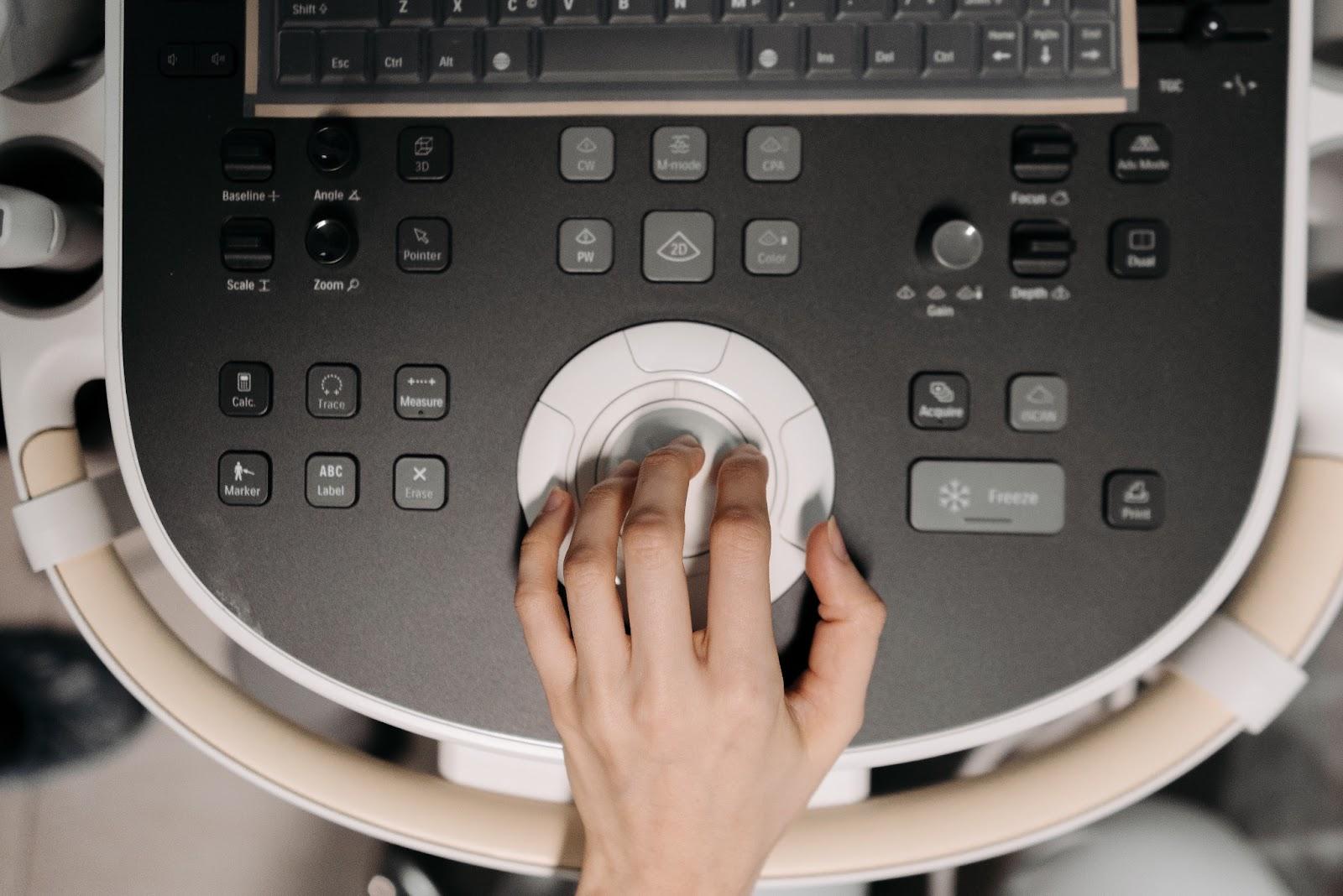10/30/2023
By Don DiCicco
A dosimetrist plays a crucial role in the field of radiation therapy. As a highly specialized professional, a dosimetrist is responsible for calculating and administering the optimal dose of radiation to a patient's body as prescribed by a radiation oncologist. If you have a keen interest in healthcare, technology, and physics, a career as a dosimetrist might be perfect for you.
A dosimetrist's job is highly rewarding, both personally and financially. According to the Bureau of Labor Statistics, the median annual salary for a dosimetrist is about $86,000, with the top ten percent earning more than $123,000 annually.
The demand for dosimetrists is on the rise, with a projected job growth rate of 7% from 2019 to 2029. This makes it a promising career for those who want stability, job satisfaction, and a good paycheck. We'll discuss dosimetry and six related occupations to show the broad opportunity that is available in this field.
What is a Medical Dosimetrist?
A Medical Dosimetrist is a healthcare professional who specializes in calculating and administering the correct dose of radiation to tumor sites in cancer patients. They work closely with radiation oncologists, medical physicists, and radiation therapists to design treatment plans and determine the most effective way to deliver radiation therapy.
Their role also includes verifying treatment accuracy and patient safety throughout the treatment process. A Medical Dosimetrist must have a thorough understanding of anatomy and medical physics and technical skills in using computer software and radiation therapy equipment.
Duties and Job Responsibilities of a Medical Dosimetrist
The dosimetrist will first review the patient's medical history and conduct simulation sessions to determine the exact location of the cancer. Specialized computer software calculates the precise dosage and distribution of radiation that is necessary to treat cancer. This information is used in close collaboration with the patient's physician, the oncologist, and other healthcare professionals, to develop a customized treatment plan for the patient.
The patient's progress is closely monitored throughout the treatment, and appropriate adjustments to the radiotherapy ensure the best possible outcome. Safety is key. The goal is to target the cancer with the radioactive beam while avoiding normal tissues and organs. Treatment plans comply with all applicable regulations and guidelines.
A good dosimetrist also communicates closely with patients and their families to explain the treatment process and answer any questions they may have. Maintaining accurate records of all treatment plans and patient progress is also crucial.
Dosimetrists must keep up-to-date with the latest developments in the field, study results, and are often involved with research and development projects to improve the effectiveness of treatments and contribute to the advancement of cancer science.
Finally, a dosimetrist may train and supervise other radiation therapy professionals, including radiation therapists and radiation oncology students. Overall, a medical dosimetrist plays a crucial role in the treatment of cancer patients and must have a thorough understanding of radiation therapy and its application.


Qualifications and Skills Needed to Become a Medical Dosimetrist
To become a medical dosimetrist, you typically need a bachelor's degree in radiation therapy, medical dosimetry, or a related field. In addition to having a degree, you may also need to obtain certification through the Medical Dosimetrist Certification Board (MDCB).
Other skills and qualifications needed for this profession include:
- Strong analytical skills: Medical dosimetrists must be able to analyze complex medical data and accurately plan radiation treatments for patients.
- Attention to detail: Dosimetrists need to be meticulous in their work to ensure accurate and safe radiation treatments for patients.
- Excellent communication skills: Dosimetrists must communicate effectively with patients, doctors, and other medical professionals in order to collaborate on patient treatment plans.
- Computer proficiency: This job requires using complex computer programs to plan and deliver radiation treatments.
- Knowledge of radiation physics and biology: Medical dosimetrists need a strong understanding of the principles of radiation physics and biology in order to plan treatments effectively.
- Critical thinking skills: Dosimetrists need to think critically and make decisions quickly in emergencies.
- Compassion and empathy: This job involves working with patients who are receiving radiation treatments, so compassion and empathy are important traits to have.
- Physical stamina: This job can require long periods of standing or sitting and may involve lifting heavy equipment.
Educational Requirements, Certifications, and Licensure for Entry
To become a dosimetrist, one must meet the following educational requirements, special certifications, and licensure procedures:
- Education: A minimum of a bachelor's degree in medical dosimetry, radiation therapy, or a related field is required to become a dosimetrist. Some programs also require a clinical internship or residency within the field.
- Certification: Once a dosimetrist has completed their education, they must pass the Medical Dosimetrist Certification Board (MDCB) exam to become certified. This exam tests the knowledge and skills needed to be a competent and safe dosimetrist.
- Licensure: Dosimetrists may also need to obtain a state license, depending on the state in which they plan to work. Licensure requirements vary by state but generally require completing an accredited educational program and passing the MDCB exam.
- Continuing Education: Dosimetrists are required to maintain their certification by completing continuing education courses throughout their career. This ensures that they stay up-to-date with the latest technologies and techniques in the field.
In summary, becoming a dosimetrist requires a bachelor's degree, certification through the MDCB, and possibly a state license. Continuing education is also required to maintain certification throughout one's career.


Overview of Career Opportunities and Positions in Dosimetry
Medical dosimetrists have excellent career prospects since the demand for radiation therapy is expected to grow due to the aging population and increased cancer incidence rates. Some of the career opportunities and positions available for medical dosimetrists include:
- The primary role of a medical dosimetrist is to work closely with radiation oncologists and medical physicists to design and develop effective treatment plans for cancer patients.
- In some healthcare organizations, treatment planning coordinators manage and oversee the treatment process. They assist the dosimetrists and radiation therapists to work cohesively to deliver the best possible care to patients.
- A radiation oncology manager oversees the entire radiation therapy department, including medical dosimetrists, radiation therapists, and other staff members. They are responsible for efficient department operation and top-quality care for the patients.
- Medical physicists are responsible for maintaining and testing equipment, analyzing data, and developing treatment plans.
- Radiation therapists work closely with medical dosimetrists to administer radiation therapy to cancer patients. They operate the equipment and monitor the patients during treatment.
- Radiation safety officers are responsible for ensuring that the radiation therapy equipment and procedures are safe for patients, staff members, and the environment. They ensure that the healthcare organization follows Federal and State regulations regarding radiation safety.
- Medical dosimetrists can also work in research, contributing to developing and evaluating new radiation therapy techniques and technologies.
In conclusion, medical dosimetrists have numerous career opportunities in radiologic therapy and related fields. They can advance their careers by pursuing advanced education and certifications. With the increasing demand for radiation therapy, medical dosimetrists will continue to play a significant role in cancer treatment and patient care.
Advance your Career in This Important Field of Healthcare
Dosimetry plays an important role in the field of medicine as it helps to ensure the safe and effective delivery of radiation therapy for the treatment of cancer and other diseases. Measuring and calculating the amount of radiation delivered to the patient is crucial in determining the appropriate dosage of radiation therapy. Accurate dosimetry ensures that the patient receives the correct therapeutic dose of radiation, minimizing the risk of potential side effects.
Dosimetry is also essential in the monitoring and management of radiation exposure for healthcare workers, patients, and the public. Measuring and monitoring radiation exposure levels can help minimize the risk of radiation-induced illnesses and diseases, such as cancer and genetic mutations. Effective dosimetry programs help ensure that radiation exposure is kept at safe levels and that potential risks are identified and managed appropriately.
Additionally, dosimetry plays a crucial role in developing and testing new medical imaging and therapy techniques. In summary, dosimetry is an essential aspect of medicine that helps ensure the safe and effective delivery of radiation therapy, the monitoring and management of radiation exposure, and the development of new medical imaging and therapy techniques.